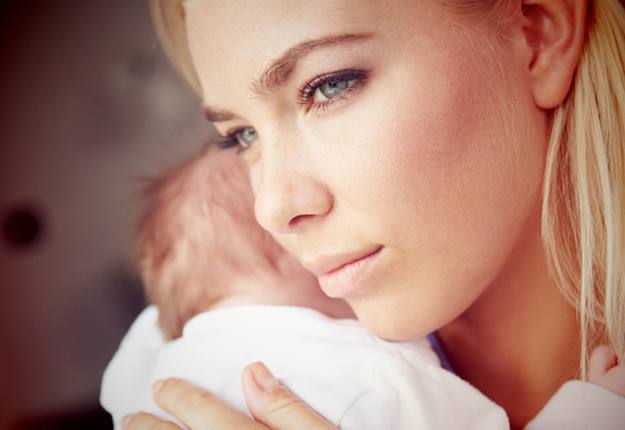I found out I was pregnant with my second baby just before my first child’s first birthday.
Although I was extremely nervous about how I was going to manage 2 under 2, I was quite relieved that the decision to have another baby had been taken out of my hands… My first little boy was born 2 months premature, so with the trauma of his early arrival I often wondered if I would be brave enough to go back for another baby?!
The experience of having my second little boy was quite the opposite to my first birth. It was a natural and beautiful birth that I shared with my husband and special friend. At the time I remember being overwhelmed with gratitude for being able to experience a natural birth after a caesarian first time round.
When I look back however, I think that the birth was probably the start of my postnatal depression (also known know as perinatal depression, but for the purposes of this article I will refer to it as PND).
“The more ‘normal’ that everything was with my second baby, the more I was reminded of how ‘abnormal’ and challenging things had been with my first.”
These feelings often plagued my thinking in the early days. I would be enjoying a beautiful bonding moment breast-feeding, and then the tears would start to flow because I remember having to wait 3 weeks before I could even try feeding my first little boy. There was a lot of sadness that I held onto very tightly whilst being in survival mode with 2 under 2.
There was also plenty of good intentions from people reminding me of how lucky I was to have 2 healthy little boys after all that we had been through, but this seemed to make it worse. My guilty feelings started and the dilemma in being thrilled that we had two healthy bubs, coupled with an unspeakable grief continued. The lack of ‘air time’ I gave myself and what was imposed I guess by other well-meaning people in my life, failed to address what was being bought up for me on a daily basis around my start to Motherhood.
I found quickly that my unexpressed sadness and guilt turned into indescribable anxiety. I can put a name to it now because I understand it.
But back then I could only identify with it as a constant knot in my stomach that made it difficult for me to make decisions, that had me overreacting to little situations, that left me interpreting what people said as constant criticism of how I was Mothering and that eventually saw me withdrawing from social situations.
Along with the anxiety other things started to happen. I would hear my baby crying even when the house was silent and I started to think that I was doing more damage to my boys by being here than if I was not around. I wanted to run, hide and put an end to it all.
The suicidal thoughts became more frequent. But they remained inside, held tightly under lock and key by my mantra ‘don’t let anyone see your weakness’.
“What others saw from the outside was completely different to what I was experiencing on the inside”.
They saw a young Mum who had two little boys on a great routine of eating, playing and sleeping. I had a nice house, a great husband, a job to return to after maternity leave and a supportive extended family that helped out with the kids when needed. What they saw I knew was true as well, but there was something unknown happening inside of me that came in waves and that started crashing over me with increasing regularity.
I sought some counselling at a local family care center because I was aware I needed some help. At the time I was not really sure what I was having counselling for, but part of me knew there was something not quite right.
After a few sessions I remember asking the counselor, who I had developed a straight talking relationship with (being a social worker myself) I asked her ‘what do you think is wrong?’ She replied gently ‘ I think you have serious postnatal depression’. I remember becoming incredibly defensive and telling her flat out that I didn’t think PND existed and I actually believed it was an excuse for people who were ‘failing’ as Mothers. As I write this now I am so sorry to myself and other women that I had ever held this belief.
“If I had of been able to separate PND from being a ‘bad mother’ I probably would have been open to getting help sooner”.
The counselor gave me a book on PND with different women’s experiences in it. I sat in bed that afternoon and started reading and I remember being blown away that each of the women were describing symptoms of more or less intensity that I had been experiencing.
Not one woman’s story was exactly the same as mine, but each of them shared similar themes and that made me cry more than I had allowed myself to before. I cried mostly because I was relieved that what I was experiencing actually had a name that I understood now, but also because I was so sad that I had suffered for what felt like forever without getting help.
My husband was probably the only one who really saw things slipping for me. It was the night that he sat with me on the couch, my brave and courageous man who is never lost for words, and started to cry saying ‘I don’t know what to do?’ It was at this point that I realised (when my little boy was about 6 months old) that something was seriously wrong.
Being the warrior women that I was I continued individual counselling through a family center, which later turned into group therapy as well. I started exercising regularly, accessing formal and informal support with childcare for the kids and was convinced I was going to get well without medication.
“I was going to show other women how to ‘do’ postnatal depression ‘well’ and I would be one of the success stories”.
Unfortunately despite the enormous amount of support I had around me things continued to slip. I ended up having to go on medication as I felt I had exhausted all other options. Although I was unsure about how I felt about taking medication myself, I was certain that I could not put my family though anymore. I owed it to them. Now I realise I owed it myself as well.
Within a week of taking medication I remember thinking am I going to feel high? but I just started to feel like me again. Oh the relief! So medication combined with heaps of counselling, support, group work, family help, childcare and exercise got me through it in the end! Talking about it really helped…
So my intention now that I am well is to keep talking about it. Not because I had PND, but because I survived it. PND depression affects 1 in 7 new mothers and 1 in 10 new fathers.
“Start Talking” is the motto of a special place called The Gidget Foundation www.gidgetfoundation.com.au
The Gidget Foundation works to promote awareness of PND and anxiety amongst women and their families, their healthcare providers and the wider community to ensure that those in need receive timely, appropriate and supportive care.
The Gidget Foundation provides a unique support service at Gidget House for public and private patients. They offer assessment and counselling through a psychologist, with access to psychiatric and social work referral as needed. In order to access their service you need a referral from your GP.
If you or someone you know is experiencing PND start talking about as there is help available.





















5:22 pm
11:42 pm
10:26 am
10:42 am
-

-
-
Angela replied
- 25 Sep 2014 , 8:50 pm
-

-
-
mom94125 replied
- 18 Oct 2015 , 4:44 pm
Reply11:13 am
-

-
-
Angela replied
- 01 Sep 2014 , 9:46 am
Reply10:14 am
-

-
-
Angela replied
- 12 Aug 2014 , 1:47 pm
Reply1:03 pm
-

-
-
Angela replied
- 12 Aug 2014 , 1:44 pm
Reply3:44 pm
-

-
-
Angela replied
- 31 Jul 2014 , 7:53 pm
Reply9:59 am
-

-
-
Angela replied
- 31 Jul 2014 , 2:40 pm
Reply10:35 am
-

-
-
Angela replied
- 30 Jul 2014 , 7:42 pm
Reply8:49 am
-

-
-
Angela replied
- 30 Jul 2014 , 7:38 pm
Reply10:13 pm
-

-
-
Angela replied
- 30 Jul 2014 , 7:36 pm
Reply6:34 pm
-

-
-
Angela replied
- 30 Jul 2014 , 7:33 pm
Reply9:59 am
-

-
-
Angela replied
- 30 Jul 2014 , 7:30 pm
Reply2:38 am
-

-
-
Angela replied
- 30 Jul 2014 , 7:31 pm
Reply11:34 pm
-

-
-
Angela replied
- 30 Jul 2014 , 7:28 pm
Reply10:47 pm
-

-
-
Angela replied
- 30 Jul 2014 , 7:23 pm
-

-
-
ginoula5 replied
- 15 Aug 2014 , 9:44 am
Reply9:49 pm
-

-
-
Angela replied
- 30 Jul 2014 , 7:21 pm
Reply5:07 pm
-

-
-
Angela replied
- 28 Jul 2014 , 8:06 pm
-

-
-
scottie replied
- 29 Jul 2014 , 8:54 am
Reply4:41 pm
-

-
-
Angela replied
- 28 Jul 2014 , 8:03 pm
Reply- 1
- 2
- 3
- »
Post a commentTo post a review/comment please join us or login so we can allocate your points.